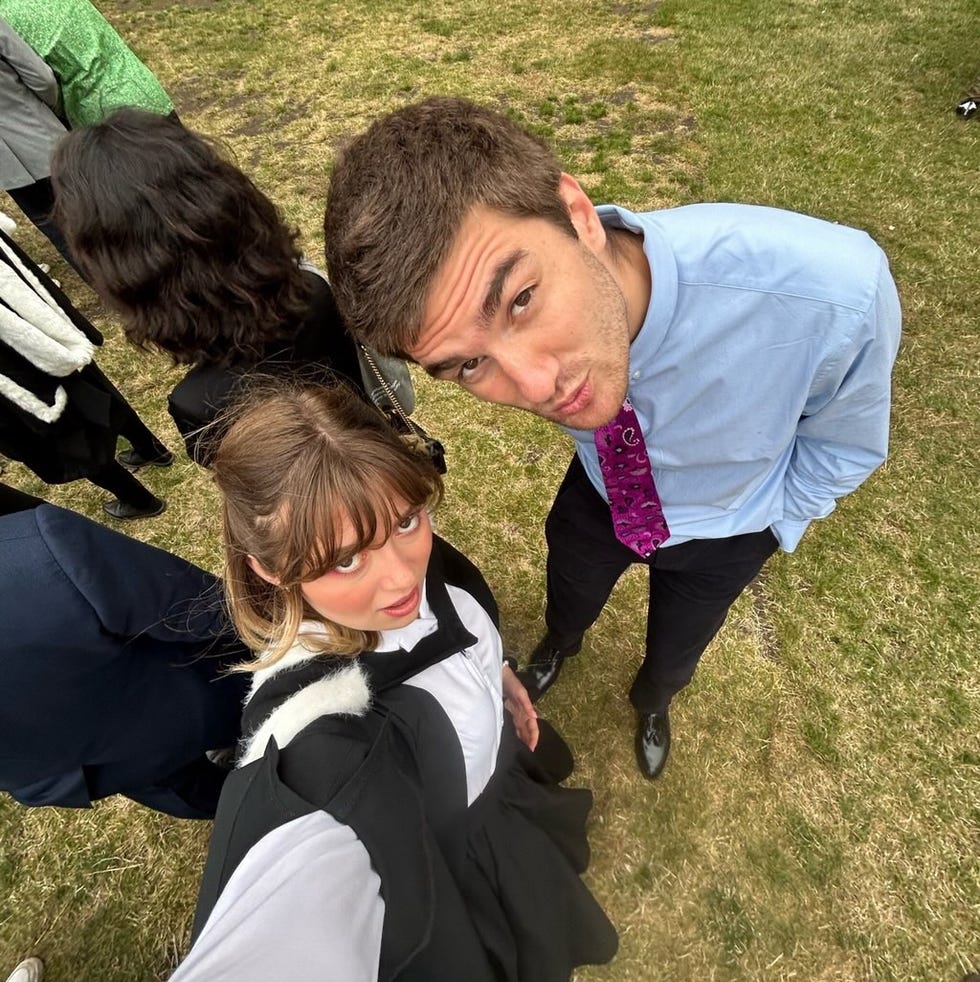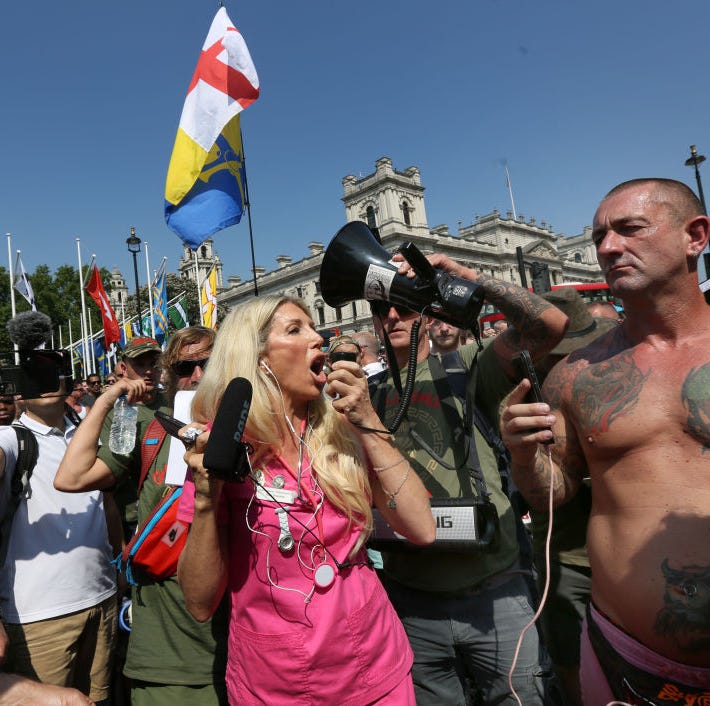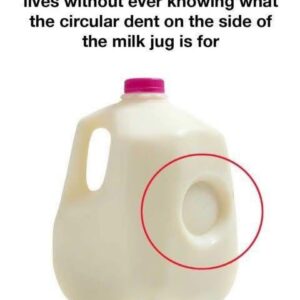It’s hard to explain what being a twin is like. You don’t see yourself as a singular person; you come as a pair. It feels like you have — or should have — a buddy to go through every life experience with. My twin, Paloma, died last July at the age of 23. From a cancer that doctors initially said she had a high chance of beating with chemotherapy. But Paloma didn’t get the recommended treatment – because, in my view, she was blindsided by our mum’s dangerous anti-medicine conspiracy theories.
That’s also the case for countless others targeted by influencers pushing medical misinformation on social media. It’s why I decided to speak firstly to BBC Panorama and BBC’s Marianna in Conspiracyland podcast about what happened to my sister.
Growing up, Alex Jones — an American conspiracy theorist who claimed the Sandy Hook school shooting was staged — was the soundtrack to Paloma and I being dropped off at school. The interest in conspiracy theories started with my dad, Faramarz; he’s Iranian and, because of his upbringing, has a distrust of the US government due to negative foreign intervention. My mum soon joined in. Quickly, the idea that 9/11 and the Boston bombings were an ‘inside job’ became accepted in our family and casually discussed over the dinner table.
As children, you naturally absorb your parents’ beliefs: suncream was suddenly ‘toxic’ and it’s embarrassing to admit, but at one point my older brother Sebastian and I were convinced the royal family were shape-shifting lizards.
Paloma was different. When Sebastian and I were watching conspiracy theory videos on YouTube and nodding along to what our parents told us, she didn’t engage quite so much. Paloma was more interested in sewing her own clothes, playing board games and reading Spanish literature — or making me laugh. People didn’t expect her to have such a goofy sense of humour, because of how she looked, but she loved making up funny rap songs using Shakespearean language or playing weird little characters. But I found our parents’ conspiracy theories were impossible to tap out of completely. The house was an extremely difficult environment to grow up in.
Ultimately, Paloma just wanted her mother’s care, like anyone. She was a pacifier. If we ate something that we were told as kids was toxic, we’d get in trouble; Paloma would never argue back in the same way Sebastian or I would.
Things intensified when Paloma and I were around 11 years old: our mum was diagnosed with breast cancer. This was 2012, and her mistrust of medicine had fully taken hold. She was a qualified nurse but hadn’t worked in the field for over a decade, instead opening an aesthetics business. At first, she went along with the doctor’s advice and had surgery. This is what cured her. But instead of follow-up chemotherapy or radiotherapy, from what I remember mum opted for a regime of juices, mistletoe injections and enemas, a much-disputed regime known as Gerson therapy*.
She then started crediting this with her recovery rather than the operations. Mum began giving us ‘healing’ juices, without telling us what was really in them, and describing herself as an ‘authentic’ health warrior who had seen the ‘truth’. She soon began posting her ideas online and building a Facebook following, including posting about her own breast cancer.
As my mum’s conspiracy theory beliefs continued to ramp up and spiral out of control, my brother and I started to break away from her. As teenagers we tried to stay out of the family home as much as possible, and after spending more time around other people, Sebastian and I began to realise that perhaps the conspiracy theories that mum obsessed over weren’t actually exposing ‘dark hidden truths’ after all.
Mum then began styling herself as ‘Kate Shemirani, the Natural Nurse in a toxic world’ online (although her real name is Kay) and charged her ‘health and truth-seeking’ followers over £100 for a personal consultation. She sells ‘healing’ apricot kernels and appears on far-right podcasts, with the likes of Tommy Robinson, and billing herself as a Christian. Leaning into that religious aspect and language, mum labelled herself as a ‘true seer’ with the power to highlight the ‘medical industry’s corruption’.
I think she enjoyed feeling important, like someone who could translate what’s ‘really going on’ in the world to the ‘sheeple’. It worked — and her following grew.
Ignoring the science
The pandemic saw my mum’s online notoriety soar: she claimed the virus was a political tool to gain access to — and change — people’s DNA through vaccines, and took part in a London rally which led to a Met Police investigation and to her being struck off the Nursing and Midwifery Council in 2021. Around that time, mum’s accounts were banned from social media and she entered what I call ‘the wilderness years’, where she was receiving less attention online.
We had all moved out of home by then, Paloma was at Cambridge, studying Spanish and Portuguese, and our contact with our mum was sporadic and hectic. I could tell it impacted Paloma, who did want to be able to have the consistent loving relationship that Kay always withheld from her.
After graduating, Paloma moved back into the family home with her. She was nervous, as, over the years their relationship had grown strained. Paloma told me how mum started demanding she pay rent, once even moving all of Paloma’s stuff into storage after she spent a weekend away.
Paloma then moved into a flat with a housemate and began living independently. But not long after, she began to experience chest pains. A mass was identified. After testing and a biopsy, doctors called Paloma a few days before Christmas in 2023, asking her to fly home from a trip to Sweden she was on with her boyfriend at the time. She then phoned me crying from the hospital, saying doctors believed she had non-Hodgkin lymphoma, a form of cancer that can be aggressive.
I was told the medical team had given Paloma an 80% chance of being cured with chemotherapy. I also found out that when Paloma called our mum to tell her the updates, desperately wanting support, mum’s mistrust of medicine was unleashed once more. Only this time, she wasn’t making decisions about her own body. Mum messaged Paloma’s boyfriend at the time saying: Tell Paloma not to verbally consent to chemo or any treatment. She must not sign. In my opinion, she saw that Paloma was engaging with doctors and wanted to stop that.
Initially, I believe mum showed Paloma the affection she’d always wanted — but also began to quickly press upon her the idea that chemotherapy was akin to ‘pumping mustard gas’ into her body, when she was in a moment of extreme vulnerability. Mum, I suspect, would have promised Paloma that an ‘all-natural cure’ would keep her fertility and hair intact too, tapping into understandable fears and using herself as a misleading example. She then gradually began to isolate Paloma from her social circle.
I last saw my twin sister on Christmas Day 2023, after trying to convince her to stop being treated by my mum. Instead of traditional chemotherapy, Paloma was relying on fruit juices and infrared saunas to heal her. Ideas that mum had long broadcast to the world: she had been allowed properly back online when Twitter became X and reinstated her account. Before too long, mum was soon using my sister’s illness as a narrative to lure followers in.
Paloma died a few months later, in July last year. Paloma passed away after having a heart attack and spent several days on life support before the machine was switched off. The heart attack was caused by the growing tumour, which could have potentially been treated if she had followed her doctor’s advice. I only found this out through lawyers; it’s my view that my mum actively hid Paloma’s death from me. We were in the middle of a legal case that I had launched, because I wanted an assessment of the appropriate medical treatment for my sister.
In one X post, to her 81,000 followers, Kay — who I no longer call mum, as she doesn’t fulfil the role of a mother in any way in my eyes — claims Paloma was ‘gaslit’ by doctors and experimented on by medics. She accuses the NHS of running a medical experiment on her which went wrong as her real cause of death, suggesting they wanted to steal her organs.
Kay even sent a text to one of Paloma’s friends after she passed away, saying, “This way [without chemotherapy], Paloma is intact and beautiful with all of her organs as she wanted. Her body is now perfect and healed, because she is with our Lord and Creator, and that is my faith. Ultimately, she returned to it all on her own.” Kay has since issued a press statement with my dad, saying any allegations against the two of them are “state-sponsored propaganda designed to silence the truth of what happened to our daughter and reframe a preventable death as parental misconduct — despite overwhelming legal, medical and forensic documentation to the contrary.”
She continues to deny that Paloma ever even had cancer. An inquest is due to start soon.
When Kay and my dad, Faramarz, were contacted by Cosmopolitan, both said that Paloma’s death is a sensitive family matter, denied any wrongdoing, and stated they would pursue legal action if false statements were published. However, neither provided any evidence to the allegations that they actively contributed to Paloma’s death and promote conspiracy theories.
Kay stated, “I strongly reject every claim made against me, many of which are factually incorrect, deeply misleading, and legally actionable.” Faramarz sought to highlight that “Paloma’s case is the subject of an ongoing police investigation and a forthcoming coroner inquest.”
A different kind of virus
For the past year, I haven’t been able to grieve properly. My life has been dominated by police, coroners, and lawyers. While some have been kind, others have not always treated me like someone whose sister, who had her whole life ahead of her, has just died. Paloma’s death has also opened my eyes to bigger power structures at play in the world, and now it feels like my duty as a brother to speak out on her behalf.
Conspiracy theorists, like my mother, scare people into thinking there’s hidden evil in the world and present themselves as being the only ones honest and brave enough to bring it to light. They take grains of truth — such as the pharmaceutical industry not being perfect and doctors not always getting it right — and real concerns, and twist them into something dangerous. In my sister’s case, into something life-threatening.
This current anti-medicine and toxic wellness movement — which is only growing — is a beast with many heads that feeds on fear. Political threads run through it; one strand links to the far right and the conservative stream, which is quite Americanised, and sees ‘tradwives’ espousing the benefits of drinking raw milk, not vaccinating their children and going back to the 1950s to adopt a ‘purer’ way of living. Even though people took thalidomide back then, which caused birth defects.
The other strand is more liberal, praising Goop, astrology, ‘trusting your intuition’, and ‘dialling into your true self’, sometimes at the expense of legitimate science. Both branches often have a (seemingly healthy) thin, white blonde woman as the poster child. Someone who might appear aspirational, who meets traditional beauty standards, and who presents themselves as being in control.
Wellness conspiracy theorists recognise real issues, like contraceptive pills having side effects, and hijack them in different ways, encouraging the rejection of modern medicine as a way of ‘reclaiming bodily autonomy’ or ‘clean living’. They dress up dangerous ideas as ‘female empowerment’ and even though prior to her diagnosis I wasn’t aware of Paloma actively buying into any of this, I can imagine these narratives would have been rattling around her subconsciousness. When trying Gerson therapy, Paloma did post about it on her Instagram account, sharing photos of berry porridge labelled as ‘food that cures’ and infrared sauna blankets to ‘detox through sweat’, and it was hard for friends to call it out as concerning.
Since sharing Paloma’s story, I’ve also received dozens of messages from people saying they’ve lost their sister, mother or friend to anti-medicine propaganda. A few people have mentioned dads and brothers, but it does mostly seem to be women.
It has highlighted, to me, the subtle differences between men and women; if a woman talks about being ill or worries about her health, there’s this element of ‘oh, the silly girl is a hypochondriac!’ whereas if a man said the same thing, he’d be taken more seriously. I imagine that could also make ‘alternative’ health approaches feel a lot more appealing to women.
This mistrust of medicine – and obsession with ‘clean girl living’** — is like a dormant virus: it has the potential to grow from a passing interest to a real obsession, then when someone has a health event it can cause them to start questioning if trusting doctors is really the right thing to do. I don’t want anyone else to experience a loss like mine because of that.
I remember visiting Paloma at university a couple of years back, and she kept asking me to play Monopoly Deal but I brushed her off, saying I was too busy. I’d give the world to play a game with her now. To see her have the future she dreamed of and deserved. But that will never happen. Because, in my view, she lost her life because of Kay’s conspiracy theories.
*Dr Liz O’Riordan, a breast surgeon, cancer patient and author of The Cancer Roadmap, told Cosmopolitan UK there is “no scientific evidence” to support Gerson therapy as a treatment option and that ‘dieting cancer away’ has “been widely discredited”. Dr O’Riordan also said: “People who claim to have cured themselves with juicing have nearly always had mainstream curative treatments first, like surgery to remove the cancer.”
** Cecile Simmons, conspiracy theorist researcher and author of Ctrl, Hate, Delete, explains that: “The ‘clean girl aesthetic’, involving clean eating, clean beauty, feeds into a desire for purity and a fear of chemicals that has grown in recent years. In a world in which news reports highlight genuine environmental concerns about air or water quality, the wellness industry gives people an illusion of control by telling them that they can optimise their way out of structural problems.”
Simmons adds that anti-establishment and anti-science influencers call out the food and pharmaceutical industries, “but instead of demanding better governmental regulation or structural reform, they advocate for individuals to take responsibility for their own health” often profiting from fear and mis- and disinformation along the way. “Content often comes in the shape of highly emotional language that describes certain types of food or medication as ‘toxic’ and ‘poison’. This puts the onus of health on the individual, and can create a lot of guilt and pressure to have a ‘perfect’ diet or health routine, and can lead to an escalation where people might go beyond ‘just’ eating healthily and exercising, and start going against medical recommendations and avoiding medication that they might need.”
Listen to the Marianna in Conspiracyland 2 podcast on BBC Sounds and on Mondays at 9am on BBC Radio 4. BBC Panorama: Cancer Conspiracy Theories: Why Did Our Sister Die? is available on BBC iPlayer now.
Jennifer Savin is Cosmopolitan UK’s multiple award-winning Features Editor, who was crowned Digital Journalist of the Year for her work tackling the issues most important to young women. She regularly covers breaking news, cultural trends, health, the royals and more, using her esteemed connections to access the best experts along the way. She’s grilled everyone from high-profile politicians to A-list celebrities, and has sensitively interviewed hundreds of people about their real life stories. In addition to this, Jennifer is widely known for her own undercover investigations and campaign work, which includes successfully petitioning the government for change around topics like abortion rights and image-based sexual abuse. Jennifer is also a published author, documentary consultant (helping to create BBC’s Deepfake Porn: Could You Be Next?) and a patron for Y.E.S. (a youth services charity). Alongside Cosmopolitan, Jennifer has written for The Times, Women’s Health, ELLE and numerous other publications, appeared on podcasts, and spoken on (and hosted) panels for the Women of the World Festival, the University of Manchester and more. In her spare time, Jennifer is a big fan of lipstick, leopard print and over-ordering at dinner. Follow Jennifer on Instagram, X or LinkedIn.






